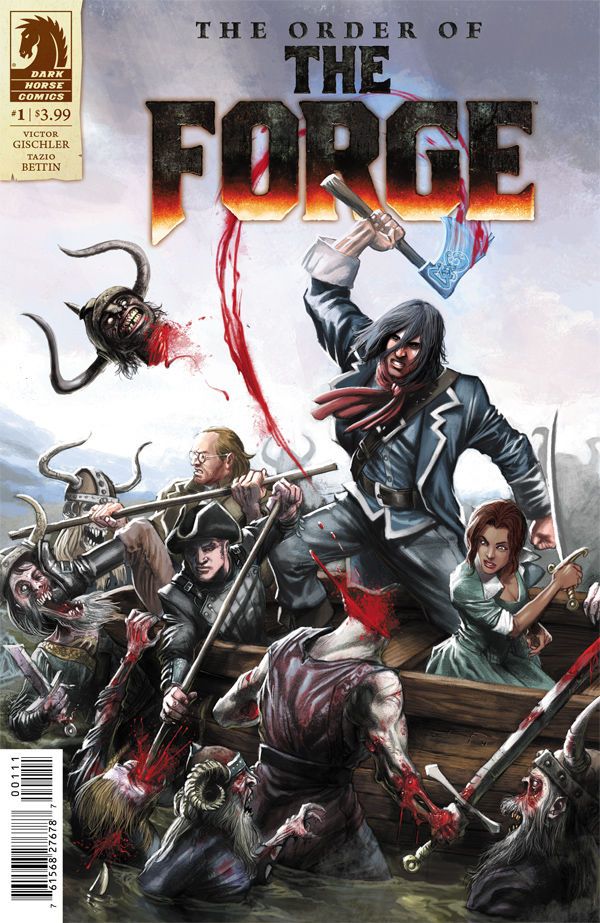As it turns out, young George Washington could tell a lie, and he was a pretty foul-mouthed liar to boot, at least until a mysterious and mystical intervention occurs when he chops down that legendary cherry tree in Donn D. Berdahl, Victor Gischler and Tazio Bettin's "The Order of the Forge" #1. Months later, a brutally honest George has befriended a rebellious Paul Revere and a hedonistic Benjamin Franklin, and it turns out he was present when that fateful bolt of lightning struck during Ben's famous experiment, with a startlingly different effect. History books never told students that this trio of early American legends just might have been the world's first team of superheroes.
While certain American heroes demanded that they be given liberty, Berdahl's concept takes a few with American history, but Gischler's script doesn't take itself so seriously that these entertaining alterations can't be enjoyed. George, Paul and Ben don't seem like historical legends as much as modern day college roommates, as their speech patterns don't sound like those that period pieces like AMC's "Turn" would have everyone believe. These discrepancies don't read like historical inaccuracies as much as artistic license, though, and are certainly no harder to accept than a mystical totem showing up in the woods near the Washington family home and serving as the possible impetus that transforms George into an American hero, future president and possibly something more.
Strange totems aren't the only oddities to be found in colonial era America, though; a local governor has his own plans to drive out the British, but with something far more malevolent than muskets and cannons. While Gischler lightly and engagingly plays fast and loose with historical facts and figures, Bettin is a little more faithful to the look of the day; there's not much in the way of historical landmarks that he has to render, but the everyday 18th Century environment -- from brothels to palatial estates -- look plenty convincing as a backdrop for these familiar characters in unfamiliar situations. Bettin's colors are largely sedate and unassuming, content to merely carry the story without drawing any notice, save for the brief metaphysical aspects, which stand out brightly.
"The Order of the Forge" #1 is largely exposition and ends on a cliffhanger that engages in a bit of repetition, but it's a nice setup that's welcoming enough, even for those who aren't big fans of history.

